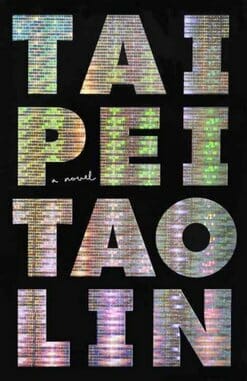Taipei by Tao Lin
About Being Lin

“In a café in Ann Arbor around 10:30 p.m., two days later, Paul realized, when he remembered Erin’s existence by seeing her name in Gmail, he’d forgotten about her that entire day (over the next three weeks, whenever more than two or three days passed since they last communicated, which they did by email, every five to ten days, in a thread Erin began the day she dropped him off at the airport, Paul would have a similar realization of having forgotten about her for an amount of time).”
-from Taipei
For me, Tao Lin has always been the Ghost Plant of the emergent literary world.
A rare and unusual undergrowth, the Ghost Plant has no chlorophyll; it rises from the ground ethereal in appearance, a thin reed about eight inches tall hunched over. Transparent for all practical purposes and so fragile-looking one might assume a single finger poke could quite possibly liquefy it on the spot, the plant proves to be surprisingly resilient, able to proliferate in the most unlikely of conditions. The plant thrives, for example, in southeast Georgia sand under sun-baked saw palmetto and mossy oak trees. An anomaly, it exists in plain sight, a lamp light of ghostly white pipes defying humidity, cold, searing heat, and salty air. Were you to stumble on Ghost Plants on a hike, you might find them a bit unnerving … but you certainly would pay attention.
Tao Lin’s work has been stared at, finger poked, wondered over, occasionally hated, and selectively admired. He has been taken seriously by the most serious of literary types – check out an interview, for example, with Bookworm radio host Michael Silverblatt. It offers at one level a curious and distracting duet of phonetic oddities (best described as a duel of monotones). It also gives insight as to why Tao gets a serious literary nod.
In fact, nearly everyone important (New York Times, London Review, Huffington Post, Salon, and others) reviewed Tao’s last book, Richard Yates. And for the most part, up to now, Tao’s work has been universally disliked.
Still, for such a purportedly terrible writer; Tao has certainly attracted all the right people in all the right places. Perhaps he appeals to so many serious literary types for his ability through blogging, press interviews, radio interviews, and book readings to appear intelligent about what he does, to come across as well read, thoughtful, intentional. With Taipei, one wonders if he has not been strategically waiting to cast this smart book upon us just as the correct chemistry of promotion, publisher, agent, twitter followers, and other important vitals coalesce. He may turn out to be less the trickster and more the surprisingly sharp entrepreneur.
I predict Taipei will most certainly be his turning point with critics. Reviewers must now contend with Tao’s writerly strengths, his honesty, insights about relationships, and quirky humor. Taipei is brilliant, clearly his most compelling publication so far … by far.
Using what he might term his ‘Lorrie Moore’ prose, echoing short story master Moore’s distinctive writing style, Tao tells the story of Paul and Erin, 20-somethings who find each other on the Internet and develop a lovely, tenuous relationship. Paul could be a version of Tao himself, a writer with a network of creative friends, an artist attending parties to locate romantic partners. A prodigious amount of drug consumption propels Paul and Erin towards one another in ways productive at times, predictably dangerous at others.
In one of their more creative enhanced ventures, Paul and Erin ingest drugs and feel that they have a new way of speaking – “the voice.” The voice amuses them as a stronger and less inhibited form of themselves, and they use it while conducting streetside interviews with movie-goers waiting in lines, in NYC cabs (they answer questions on and off drugs to test if they are more interesting one way or the other), and in Las Vegas, where they spontaneously decide to wed. They film their simple ceremony on a MacBook, convincing themselves they should be on drugs while they wed … so they seem more normal.
Paul and Erin seem narcissistic and young, and these scenes place readers in a kind of ambivalence. Do we grow tired of them? Or do we worry for them as they careen around? Either way, their abundant creativity, drug hazed or not, makes them highly productive. In an age when the young consume mass quantities of music, video, and film, Tao provides a broader statement about the difficulty and importance of giving birth to oneself in an age of shallow consumption.
The drug use does not go entirely unchallenged. Paul and his Taiwanese mother exchange extensive, pointed emails on whether drugs harm or not. At one point, Paul takes too many of the wrong kinds of drugs, and he becomes sick and scared. Such critical glimpses move the reader past Tao’s seemingly blasé endorsement of drug use; one understands his characters simultaneously live both liberated and enslaved lives. When Paul stands on a bridge in Brooklyn waiting for his drug dealer, or lies forsaken for dead in the middle of the night abandoned by Erin, Tao’s writing moves and touches.
-

-

-

-

-

-

-

-

-

-

-

-

-

-

-

-

-

-

-

-

-

-

-

-

-

-

-

-

-

-

-

-

-

-

-

-

-

-

-

-








































